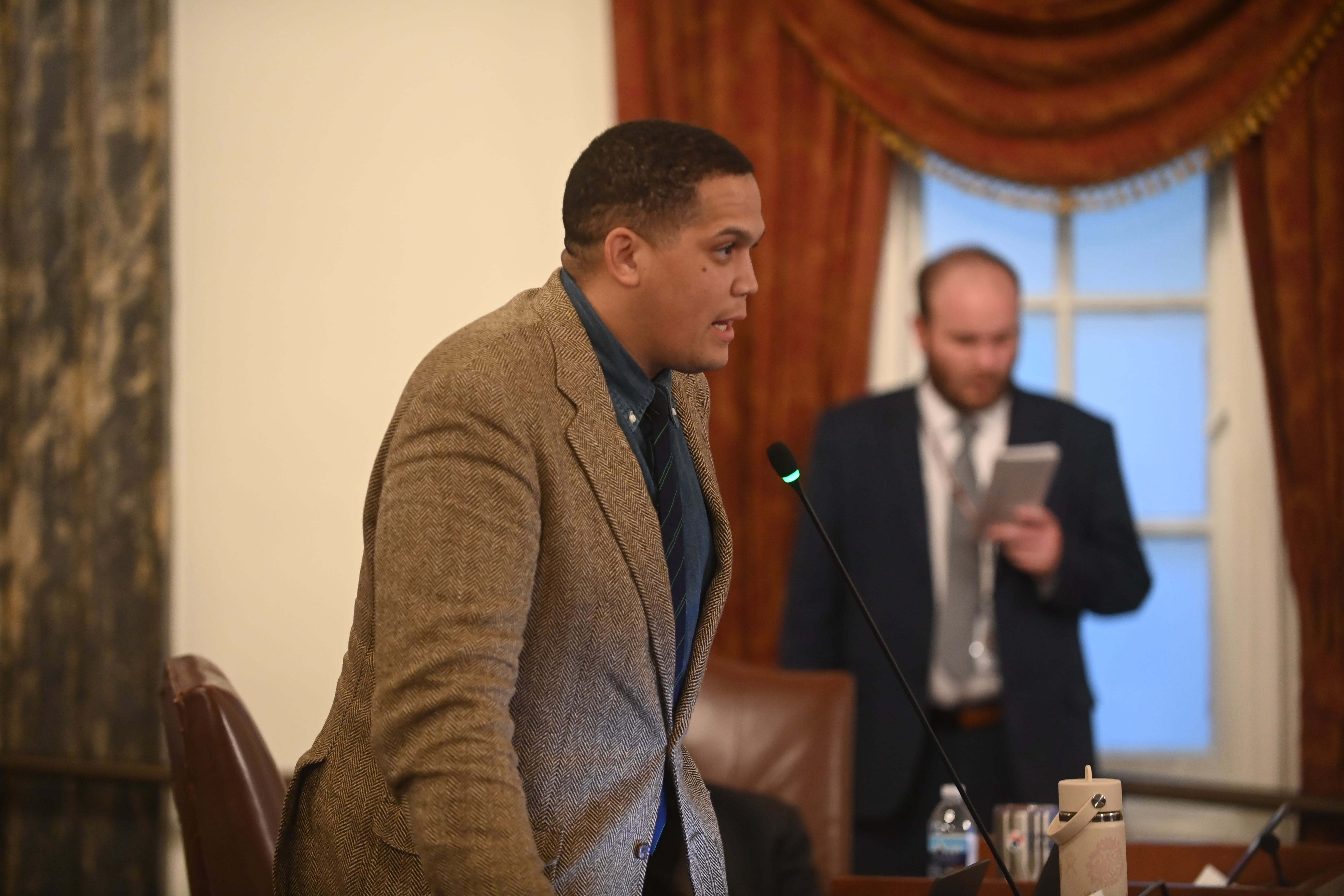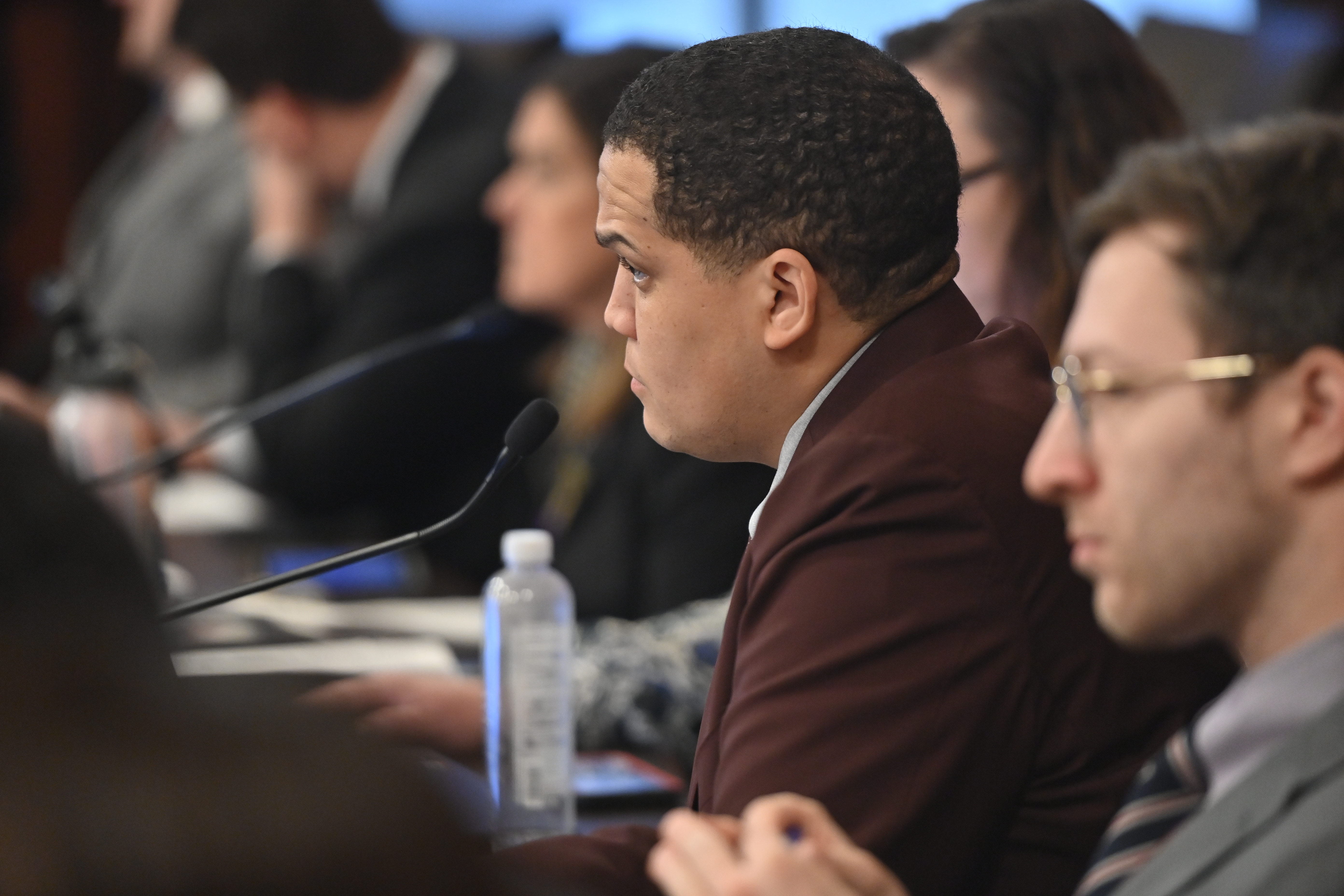- Details
- Category: Press Releases

"Survivors deserve trust in our justice system and the ability to seek safety from abusive situations, and these laws offer that empowerment," said Peters (D-Chicago). "It's crucial to ensure individuals have the resources to seek support and factor in their experiences when crafting legislation."
Read more: New laws led by Peters create fairer, more impartial systems for survivors
- Details
- Category: Press Releases

SPRINGFIELD – State Senator Robert Peters’ legislation to expand assistance under the Crime Victims Compensation Program was signed into law on Friday.
“Exposure to traumatic events can have lasting impacts on an individual’s well-being,” said Peters (D-Chicago). “It is important for our laws to acknowledge all those who should be considered under this program and to take into account the diverse range of experiences and challenges someone may face.”
The losses suffered by victims of crime are diverse and can extend beyond the immediate incident, resulting in financial losses, disruptions to daily routines and employment, and other long-term physical and emotional consequences affecting an individual’s quality of life.
Read more: Peters’ law improves Crime Victims Compensation Program
- Details
- Category: Press Releases

“Young people in the current workforce encounter challenges unique to their generation,” said Peters (D-Chicago). “These updates to our child labor laws are needed to safeguard their rights and well-being, ensuring our youngest residents have a healthy balance between their work responsibilities, schooling, extracurricular activities and personal lives.”
With support from the AFL-CIO and the Illinois Department of Labor, Peters spearheaded the overhaul of the Illinois Child Labor Law to provide more protections for youth in the workforce by addressing working conditions, age requirements and sectors prone to exploitation.
The new law extends protections to kids not enrolled in a traditional public or private school, requiring they end work by 7 p.m. on school nights. It also adds new positions to the list of prohibited jobs for minors and jobs requiring adult supervision, such as in cannabis shops and adult facilities, and imposes increased penalties for violations.
The law further addresses children who work as influencers online, specifically in vlogs, requiring any child under 16 who appears in online vlogs to be compensated based on the number of views a video receives and how many minutes they appear in the video.
- Details
- Category: Press Releases

CHICAGO — State Senator Robert Peters (D-Chicago), Senate Chair of the Illinois Legislative Black Caucus, issued the following statement in response to the body camera footage which led to the indictment of the ex-deputy who shot and killed Sonya Massey in her home:
“This video is sickening. It is despicable and disgusting to see such brutal violence toward an innocent Black woman. How did this person ever become a law enforcement officer?
“This is why we fought for increased transparency.
“This is why we fought for body camera requirements.
“This is why we fought to end cash bail to keep dangerous people detained.
“But arresting and detaining the perpetrator isn’t the end. Justice demands answers and accountability. We need to know how and why someone capable of such a horrible act was given a badge and a gun in the first place.
“The repeated murders of unarmed Black people across the country is sickening and emotionally traumatizing. Sonya Massey is dead because she called 911 for help. Our communities deserve better. We stand with the Springfield community and the Massey family.
“May Sonya Massey’s memory be a blessing and bring comfort to those who knew her.”
More Articles …
Page 18 of 85




